February 21, 2023
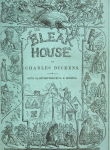 Whoa. This is one of the weirder days in my history. I’ve just realized I’ve never had a Bleak House Cocktail Talk on Spiked Punch before. I mean, you’d think I’d know, right? I write the posts! But there have been many, many posts on here, too many, really, and lots of Dickens Cocktail Talks, and my memory (writing about drinks and all) isn’t as up to snuff as the snuffiest, and I just on some level in my mind took it for granted that I’d had at least one Bleak House Cocktail Talks, but never stopped to check, until today, as I’m rereading said book, and so did indeed double and triple check and, well, weirdly, I never have had a quote from Bleak House on here. Whoa. See, Bleak House may be my favoritest Dickens book of the whole lot of ‘em. Maybe. Hard to say, and I am as we all are different people in some small manner on different days. But it is an all-time classic of the written world, an immense treasure for anyone who likes reading, and if you don’t, well, then check out the BBC Bleak House mini-series, cause it is the absolute tops. Bleak-Freaking-House! Not the peppiest, but I’ve laughed lots when re-reading. Cried, too. Jarndyce and Jarndyce man, it’s a killer. I don’t feel I need to outline the book, cause it’s well-known enough, but I do feel I need to have multiple Cocktail Talks from it to make up for my missteps in not having any on here already. I’m going to start with a dinner recitation from a ‘Slap-Bang’ dining house, where three chaps have been dining out: Guppy (a somewhat central character, who it’s hard not feel for, though he’s a little silly with his slicked-down hair, and a little, not un-savory, but not someone completely trustworthy), who works in one of the central law firms, and his pals Mr. Jobling (less central, law stationer), and Mr. Smallweed (lower clerk in the same firm as Guppy, and grandson to one serious shaking villain).
Whoa. This is one of the weirder days in my history. I’ve just realized I’ve never had a Bleak House Cocktail Talk on Spiked Punch before. I mean, you’d think I’d know, right? I write the posts! But there have been many, many posts on here, too many, really, and lots of Dickens Cocktail Talks, and my memory (writing about drinks and all) isn’t as up to snuff as the snuffiest, and I just on some level in my mind took it for granted that I’d had at least one Bleak House Cocktail Talks, but never stopped to check, until today, as I’m rereading said book, and so did indeed double and triple check and, well, weirdly, I never have had a quote from Bleak House on here. Whoa. See, Bleak House may be my favoritest Dickens book of the whole lot of ‘em. Maybe. Hard to say, and I am as we all are different people in some small manner on different days. But it is an all-time classic of the written world, an immense treasure for anyone who likes reading, and if you don’t, well, then check out the BBC Bleak House mini-series, cause it is the absolute tops. Bleak-Freaking-House! Not the peppiest, but I’ve laughed lots when re-reading. Cried, too. Jarndyce and Jarndyce man, it’s a killer. I don’t feel I need to outline the book, cause it’s well-known enough, but I do feel I need to have multiple Cocktail Talks from it to make up for my missteps in not having any on here already. I’m going to start with a dinner recitation from a ‘Slap-Bang’ dining house, where three chaps have been dining out: Guppy (a somewhat central character, who it’s hard not feel for, though he’s a little silly with his slicked-down hair, and a little, not un-savory, but not someone completely trustworthy), who works in one of the central law firms, and his pals Mr. Jobling (less central, law stationer), and Mr. Smallweed (lower clerk in the same firm as Guppy, and grandson to one serious shaking villain).
Mr. Smallweed, compelling the attendance of the waitress with one hitch of his eyelash, instantly replies as follows: Four veals and hams is three, and four potatoes is three and four, and one summer cabbage is three and six, and three marrows is four and six, and six breads is five, and three Cheshires is five and three, and four pints of half-and-half is six and three, and four small rums is eight and three, and three Pollys is eight and six. Eight and six in half a sovereign, Polly, and eighteenpence out!
Not at all excited by these stupendous calculations, Smallweed dismisses his friends with a cool nod, and remains behind to take a little admiring notice of Polly, as opportunity may serve, and to read the daily papers: which are so very large in proportion to himself, shorn of his hat, that when he holds up The Times to run his eye over the columns, he seems to have retired for the night, and to have disappeared under the bedclothes.
–Charles Dickens, Bleak House
Tags: Bleak House, Charles Dickens, Cocktail Talk, Dickens, Guppy, half-and-half, Part I, Rum
Posted in: beer, Charles Dickens, Cocktail Talk, Rum
March 16, 2021
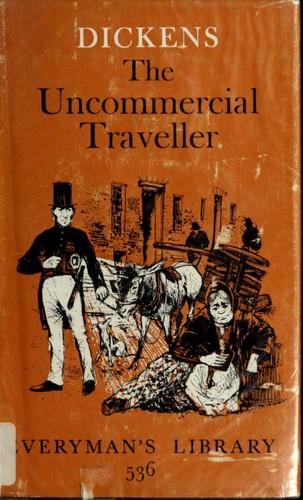 I have a tear in my eye, as while I could probably have a fair more Cocktail Talks from the Charlie Dickens collection of essays The Uncommercial Traveller, for now (but perhaps not forever), this will our last one. If you’ve missed any of the previous four, then be sure to read The Uncommercial Traveller Cocktail Talks Part 1, Part II, Part III, and Part IV, and while you’re in the reading mood, check out all the Dickens Cocktail Talks. Don’t read so much that your eyes tire, however, as you won’t want to miss the below quote. From one of the laugh-out-loud-ier pieces in the collection (and there are many funny scenes throughout, so that’s saying something), called “A Little Dinner in an Hour,” the below quote is just a small part of a regrettable dining experience Dickens has with his pal Bullfinch, when they are traveling for some business and decide to book a meal at a local spot that once was rumored to be worthy. But now leaves much to be desired! Ah, I wish I could have been there to watch it all unfold (if not to actually partake in it). A fine end to our Cocktail Talk tour through the book. Sherry, please!
I have a tear in my eye, as while I could probably have a fair more Cocktail Talks from the Charlie Dickens collection of essays The Uncommercial Traveller, for now (but perhaps not forever), this will our last one. If you’ve missed any of the previous four, then be sure to read The Uncommercial Traveller Cocktail Talks Part 1, Part II, Part III, and Part IV, and while you’re in the reading mood, check out all the Dickens Cocktail Talks. Don’t read so much that your eyes tire, however, as you won’t want to miss the below quote. From one of the laugh-out-loud-ier pieces in the collection (and there are many funny scenes throughout, so that’s saying something), called “A Little Dinner in an Hour,” the below quote is just a small part of a regrettable dining experience Dickens has with his pal Bullfinch, when they are traveling for some business and decide to book a meal at a local spot that once was rumored to be worthy. But now leaves much to be desired! Ah, I wish I could have been there to watch it all unfold (if not to actually partake in it). A fine end to our Cocktail Talk tour through the book. Sherry, please!
‘It’s quite impossible to do it, gentlemen,’ murmured the waiter; ‘and the kitchen is so far off.’
‘Well, you don’t keep the house; it’s not your fault, we suppose. Bring some sherry.’
‘Waiter!’ from Mr. Indignation Cocker, with a new and burning sense of injury upon him.
The waiter, arrested on his way to our sherry, stopped short, and came back to see what was wrong now.
‘Will you look here? This is worse than before. Do you understand? Here’s yesterday’s sherry, one and eightpence, and here we are again two shillings. And what the devil does ninepence mean?’
This new portent utterly confounded the waiter. He wrung his napkin, and mutely appealed to the ceiling.
‘Waiter, fetch that sherry,’ says Bullfinch, in open wrath and revolt.
‘I want to know,’ persisted Mr. Indignation Cocker, ‘the meaning of ninepence. I want to know the meaning of sherry one and eightpence yesterday, and of here we are again two shillings. Send somebody.’
The distracted waiter got out of the room on pretext of sending somebody, and by that means got our wine. But the instant he appeared with our decanter, Mr. Indignation Cocker descended on him again.
‘Waiter!’
— Charles Dickens, The Uncommercial Traveller
March 9, 2021
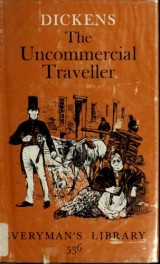 While this isn’t going to turn into The Uncommercial Traveller blog – though that wouldn’t be a horrible idea, honestly – we do have a few more stops with the wandering Charles Dickens, as he wanders through London and the UK and other parts and places as well, writing essays along the way. Today, we’re taking a journey with him to the essay called “An Old Stage-Coaching House,” where he visits a bar and town that used to be a stop for stage coaches, when such ran, before the trains took the wind out of the stage coach business, leaving towns fading behind (as in some ways the highways did to a lot of train towns). Our actual Cocktail Talk is from the owner of the Dolphin (the inn mentioned above), who still wants to give the Traveller a good meal, even if there are no stages running. Oh, don’t miss The Uncommercial Traveller Cocktail Talks Part I, Part II, and Part III, for more about the book, and all the Dickens Cocktail Talks for more good Dickens quotes.
While this isn’t going to turn into The Uncommercial Traveller blog – though that wouldn’t be a horrible idea, honestly – we do have a few more stops with the wandering Charles Dickens, as he wanders through London and the UK and other parts and places as well, writing essays along the way. Today, we’re taking a journey with him to the essay called “An Old Stage-Coaching House,” where he visits a bar and town that used to be a stop for stage coaches, when such ran, before the trains took the wind out of the stage coach business, leaving towns fading behind (as in some ways the highways did to a lot of train towns). Our actual Cocktail Talk is from the owner of the Dolphin (the inn mentioned above), who still wants to give the Traveller a good meal, even if there are no stages running. Oh, don’t miss The Uncommercial Traveller Cocktail Talks Part I, Part II, and Part III, for more about the book, and all the Dickens Cocktail Talks for more good Dickens quotes.
‘If I couldn’t give you a pint of good wine, I’d—there!—I’d take and drown myself in a pail. But I was deceived when I bought this business, and the stock was higgledy-piggledy, and I haven’t yet tasted my way quite through it with a view to sorting it. Therefore, if you order one kind and get another, change till it comes right. For what,’ said Mellows, unloading his hat as before, ‘what would you or any gentleman do, if you ordered one kind of wine and was required to drink another? Why, you’d (and naturally and properly, having the feelings of a gentleman), you’d take and drown yourself in a pail!’
–Charles Dickens, The Uncommercial Traveller
March 2, 2021
 As we continue traveling with our pal Charles Dickens writing as The Uncommercial Traveller (be sure to read The Uncommercial Traveller Cocktail Talks Part I and Part II, to have a little more background on this collection of essays that isn’t perhaps read enough – oh, and be sure to see all Dickens Cocktail Talks, too), today we walk with him through London into a dining establishment that he’s very positive on, due to it’s low prices and big portions (remaining taste throughout), all focused it seems to me to be supportive of all income ranges. Great, right! Except there’s one facet that Dickens isn’t a fan of, and, really, who can blame him.
As we continue traveling with our pal Charles Dickens writing as The Uncommercial Traveller (be sure to read The Uncommercial Traveller Cocktail Talks Part I and Part II, to have a little more background on this collection of essays that isn’t perhaps read enough – oh, and be sure to see all Dickens Cocktail Talks, too), today we walk with him through London into a dining establishment that he’s very positive on, due to it’s low prices and big portions (remaining taste throughout), all focused it seems to me to be supportive of all income ranges. Great, right! Except there’s one facet that Dickens isn’t a fan of, and, really, who can blame him.
The most enthusiastic admirer of those substantials, would probably not object to occasional inconstancy in respect of pork and mutton: or, especially in cold weather, to a little innocent trifling with Irish stews, meat pies, and toads in holes. Another drawback on the Whitechapel establishment, is the absence of beer. Regarded merely as a question of policy, it is very impolitic, as having a tendency to send the working men to the public-house, where gin is reported to be sold. But, there is a much higher ground on which this absence of beer is objectionable. It expresses distrust of the working man.
— Charles Dickens, The Uncommercial Traveller
February 23, 2021
 This is going to be a long quote (as a warning – but not to push you away from reading it, cause it is awesome), so not much in the way of introduction here. For more of that, be sure to read The Uncommercial Traveller Cocktail Talk Part I. Here in Part II, we’re going to hang outside another public house, but this time with a very wonderful dog, in an essay all about London “shy neighborhoods” and the animals (and people, thought a little less) that hang out within them. Dickens from all I can tell, had a big fondness for dogs – check out the Dombey and Son Cocktail Talk all about Diogenes the dog, my favorite Dickens character, for another example. Perhaps after you read the below, which has rockets up my list of favorite Dickens quotes quite rapidly. For the whole thing, but highlighted by the phrase “an intelligence of ears and tail” which I find absolutely spot on and lovely.
This is going to be a long quote (as a warning – but not to push you away from reading it, cause it is awesome), so not much in the way of introduction here. For more of that, be sure to read The Uncommercial Traveller Cocktail Talk Part I. Here in Part II, we’re going to hang outside another public house, but this time with a very wonderful dog, in an essay all about London “shy neighborhoods” and the animals (and people, thought a little less) that hang out within them. Dickens from all I can tell, had a big fondness for dogs – check out the Dombey and Son Cocktail Talk all about Diogenes the dog, my favorite Dickens character, for another example. Perhaps after you read the below, which has rockets up my list of favorite Dickens quotes quite rapidly. For the whole thing, but highlighted by the phrase “an intelligence of ears and tail” which I find absolutely spot on and lovely.
At a small butcher’s, in a shy neighbourhood (there is no reason for suppressing the name; it is by Notting-hill, and gives upon the district called the Potteries), I know a shaggy black and white dog who keeps a drover. He is a dog of an easy disposition, and too frequently allows this drover to get drunk. On these occasions, it is the dog’s custom to sit outside the public-house, keeping his eye on a few sheep, and thinking. I have seen him with six sheep, plainly casting up in his mind how many he began with when he left the market, and at what places he has left the rest. I have seen him perplexed by not being able to account to himself for certain particular sheep. A light has gradually broken on him, he has remembered at what butcher’s he left them, and in a burst of grave satisfaction has caught a fly off his nose, and shown himself much relieved. If I could at any time have doubted the fact that it was he who kept the drover, and not the drover who kept him, it would have been abundantly proved by his way of taking undivided charge of the six sheep, when the drover came out besmeared with red ochre and beer, and gave him wrong directions, which he calmly disregarded. He has taken the sheep entirely into his own hands, has merely remarked with respectful firmness, ‘That instruction would place them under an omnibus; you had better confine your attention to yourself—you will want it all;’ and has driven his charge away, with an intelligence of ears and tail, and a knowledge of business, that has left his lout of a man very, very far behind.
— Charles Dickens, The Uncommercial Traveller
Tags: beer, Charles Dickens, Cocktail Talk, Dickens, great dogs, intelligence of ears and tail, Part II, red ochre and beer, shy neighborhoods, The Uncommercial Traveller
Posted in: beer, Charles Dickens, Cocktail Talk
February 16, 2021
 The Uncommercial Traveller by our pal Charles Dickens is not a book one hears about enough – heck, even a Dickens head like me hadn’t had it in his hands until recently. But I scored a copy, which isn’t really that hard, though said copy is like a print-to-order thing, with no, like TOC, or copyright notes, or title page, anything. Which is fine, and definitely better than no copy at all! If you don’t know (and I’ll admit, I didn’t know much until I got said copy), The Uncommercial Traveller is a collection of personal essays, or literary sketches as they say, that Dickens originally published in a journal he founded called “All the Year Round” (if anyone wants to gift me a few original copies of that, go right ahead), and really involves the main character (Dickens, that is, as far as it goes) writing about his wanderings around London, the UK, and (in a dreamy sort-of way and regular ways) Europe, including visiting the site of a famous shipwreck, strolling the city in the wee hours due to insomnia, mapping out the haunts of neighborhood dogs, visiting the town he grew up in, and more. They are all written in the Dickensian style, with wit, insights that remain relevant today, details rendered through his particular peculiar eye, and all. He stops at pubs and hotels and other watering holes, too, as he loved such, and drinks, so it makes for good Cocktail Talk-ing (oh, don’t miss all the past Charles Dickens Cocktail Talks, as there are many jolly ones). I’m not sure yet how many Uncommercial Traveller Cocktails Talks I’ll have yet, but you can bet they’ll be more! We’re going to start at one of those neighborhood public houses, one attended by theatre-goers during intermission. And while it does have drinks! It’s really an ode to the sandwich. But I love sandwiches! Especially with drinks.
The Uncommercial Traveller by our pal Charles Dickens is not a book one hears about enough – heck, even a Dickens head like me hadn’t had it in his hands until recently. But I scored a copy, which isn’t really that hard, though said copy is like a print-to-order thing, with no, like TOC, or copyright notes, or title page, anything. Which is fine, and definitely better than no copy at all! If you don’t know (and I’ll admit, I didn’t know much until I got said copy), The Uncommercial Traveller is a collection of personal essays, or literary sketches as they say, that Dickens originally published in a journal he founded called “All the Year Round” (if anyone wants to gift me a few original copies of that, go right ahead), and really involves the main character (Dickens, that is, as far as it goes) writing about his wanderings around London, the UK, and (in a dreamy sort-of way and regular ways) Europe, including visiting the site of a famous shipwreck, strolling the city in the wee hours due to insomnia, mapping out the haunts of neighborhood dogs, visiting the town he grew up in, and more. They are all written in the Dickensian style, with wit, insights that remain relevant today, details rendered through his particular peculiar eye, and all. He stops at pubs and hotels and other watering holes, too, as he loved such, and drinks, so it makes for good Cocktail Talk-ing (oh, don’t miss all the past Charles Dickens Cocktail Talks, as there are many jolly ones). I’m not sure yet how many Uncommercial Traveller Cocktails Talks I’ll have yet, but you can bet they’ll be more! We’re going to start at one of those neighborhood public houses, one attended by theatre-goers during intermission. And while it does have drinks! It’s really an ode to the sandwich. But I love sandwiches! Especially with drinks.
Between the pieces, we almost all of us went out and refreshed. Many of us went the length of drinking beer at the bar of the neighbouring public-house, some of us drank spirits, crowds of us had sandwiches and ginger-beer at the refreshment-bars established for us in the Theatre. The sandwich—as substantial as was consistent with portability, and as cheap as possible—we hailed as one of our greatest institutions. It forced its way among us at all stages of the entertainment, and we were always delighted to see it; its adaptability to the varying moods of our nature was surprising; we could never weep so comfortably as when our tears fell on our sandwich; we could never laugh so heartily as when we choked with sandwich; Virtue never looked so beautiful or Vice so deformed as when we paused, sandwich in hand, to consider what would come of that resolution of Wickedness in boots, to sever Innocence in flowered chintz from Honest Industry in striped stockings. When the curtain fell for the night, we still fell back upon sandwich, to help us through the rain and mire, and home to bed.
–Charles Dickens, The Uncommercial Traveller
Tags: bars public house, beer, Charles Dickens, Cocktail Talk, Dickens, ginger beer, Part I, sandwich, spirits, The Uncommercial Traveller
Posted in: Bars, beer, Charles Dickens, Cocktail Talk
January 26, 2021
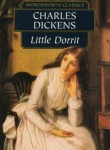 Well, it’s sad day in a way (a small sadness), as we’re at the last of our cocktail talks from the Dickens classic Little Dorrit. It’s funny to phrase it as such, “Dickens classic” that is, being that I think all Dickens books are classics. We could go on about that, but I don’t want to get in the way of our final quote any more than to say, be sure that you don’t miss Little Dorrit Cocktail Talks Part I, Part II, and Part III, as well as reading all past Charles Dickens Cocktail Talks – but maybe read the below from Little Dorrit first. In it, we return to one of my favorite characters in the book, Flora, who may be the most digression-filled character in all of Dickens, which is saying something, as he liked to tangent in perhaps the best way yet in Western Lit. If she’s not, she’s up there! And, she likes a little tipple, too, which the below has, if not much of the digressionary tactics you sometimes get with Flora. But a good way to end our tipsy tour through Little Dorrit, which I’ve certainly enjoyed!
Well, it’s sad day in a way (a small sadness), as we’re at the last of our cocktail talks from the Dickens classic Little Dorrit. It’s funny to phrase it as such, “Dickens classic” that is, being that I think all Dickens books are classics. We could go on about that, but I don’t want to get in the way of our final quote any more than to say, be sure that you don’t miss Little Dorrit Cocktail Talks Part I, Part II, and Part III, as well as reading all past Charles Dickens Cocktail Talks – but maybe read the below from Little Dorrit first. In it, we return to one of my favorite characters in the book, Flora, who may be the most digression-filled character in all of Dickens, which is saying something, as he liked to tangent in perhaps the best way yet in Western Lit. If she’s not, she’s up there! And, she likes a little tipple, too, which the below has, if not much of the digressionary tactics you sometimes get with Flora. But a good way to end our tipsy tour through Little Dorrit, which I’ve certainly enjoyed!
‘You see, my dear,’ said Flora, measuring out a spoonful or two of some brown liquid that smelt like brandy, and putting it into her tea, ‘I am obliged to be careful to follow the directions of my medical man though the flavour is anything but agreeable being a poor creature and it may be have never recovered the shock received in youth from too much giving way to crying in the next room when separated from Arthur, have you known him long?’
— Charles Dickens, Little Dorrit
January 19, 2021
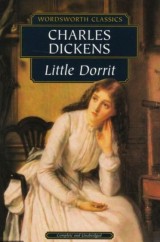 Hello Dickens fans (which I hope is everyone)! And let me just jump right in to our third quote from the immortal Dickens book Little Dorrit. Well, first, let me point you to the Little Dorrit Part I Cocktail Talk, and the Little Dorrit Part II Cocktail Talk, and for that matter, all the Charles Dickens Cocktail Talks, in case you want or get a little more book story, or read more quotes, or both! Here, we have a bit about sherry (our second sherry from the book, but it was rather popular at the time) and a bit about a character in the book that seems serene and such, but is actually a bit of a villain. There are layers of villainy in Dickens as in life, and that’s all I’m gonna say cause really, you should read the book! After the below quote of course.
Hello Dickens fans (which I hope is everyone)! And let me just jump right in to our third quote from the immortal Dickens book Little Dorrit. Well, first, let me point you to the Little Dorrit Part I Cocktail Talk, and the Little Dorrit Part II Cocktail Talk, and for that matter, all the Charles Dickens Cocktail Talks, in case you want or get a little more book story, or read more quotes, or both! Here, we have a bit about sherry (our second sherry from the book, but it was rather popular at the time) and a bit about a character in the book that seems serene and such, but is actually a bit of a villain. There are layers of villainy in Dickens as in life, and that’s all I’m gonna say cause really, you should read the book! After the below quote of course.
The Patriarchal state, always a state of calmness and composure, was so particularly serene that evening as to be provoking. Everybody else within the bills of mortality was hot; but the Patriarch was perfectly cool. Everybody was thirsty, and the Patriarch was drinking. There was a fragrance of limes or lemons about him; and he made a drink of golden sherry, which shone in a large tumbler as if he were drinking the evening sunshine. This was bad, but not the worst. The worst was, that with his big blue eyes, and his polished head, and his long white hair, and his bottle-green legs stretched out before him, terminating in his easy shoes easily crossed at the instep, he had a radiant appearance of having in his extensive benevolence made the drink for the human species, while he himself wanted nothing but his own milk of human kindness.
–Charles Dickens, Little Dorrit
 Whoa. This is one of the weirder days in my history. I’ve just realized I’ve never had a Bleak House Cocktail Talk on Spiked Punch before. I mean, you’d think I’d know, right? I write the posts! But there have been many, many posts on here, too many, really, and lots of Dickens Cocktail Talks, and my memory (writing about drinks and all) isn’t as up to snuff as the snuffiest, and I just on some level in my mind took it for granted that I’d had at least one Bleak House Cocktail Talks, but never stopped to check, until today, as I’m rereading said book, and so did indeed double and triple check and, well, weirdly, I never have had a quote from Bleak House on here. Whoa. See, Bleak House may be my favoritest Dickens book of the whole lot of ‘em. Maybe. Hard to say, and I am as we all are different people in some small manner on different days. But it is an all-time classic of the written world, an immense treasure for anyone who likes reading, and if you don’t, well, then check out the BBC Bleak House mini-series, cause it is the absolute tops. Bleak-Freaking-House! Not the peppiest, but I’ve laughed lots when re-reading. Cried, too. Jarndyce and Jarndyce man, it’s a killer. I don’t feel I need to outline the book, cause it’s well-known enough, but I do feel I need to have multiple Cocktail Talks from it to make up for my missteps in not having any on here already. I’m going to start with a dinner recitation from a ‘Slap-Bang’ dining house, where three chaps have been dining out: Guppy (a somewhat central character, who it’s hard not feel for, though he’s a little silly with his slicked-down hair, and a little, not un-savory, but not someone completely trustworthy), who works in one of the central law firms, and his pals Mr. Jobling (less central, law stationer), and Mr. Smallweed (lower clerk in the same firm as Guppy, and grandson to one serious shaking villain).
Whoa. This is one of the weirder days in my history. I’ve just realized I’ve never had a Bleak House Cocktail Talk on Spiked Punch before. I mean, you’d think I’d know, right? I write the posts! But there have been many, many posts on here, too many, really, and lots of Dickens Cocktail Talks, and my memory (writing about drinks and all) isn’t as up to snuff as the snuffiest, and I just on some level in my mind took it for granted that I’d had at least one Bleak House Cocktail Talks, but never stopped to check, until today, as I’m rereading said book, and so did indeed double and triple check and, well, weirdly, I never have had a quote from Bleak House on here. Whoa. See, Bleak House may be my favoritest Dickens book of the whole lot of ‘em. Maybe. Hard to say, and I am as we all are different people in some small manner on different days. But it is an all-time classic of the written world, an immense treasure for anyone who likes reading, and if you don’t, well, then check out the BBC Bleak House mini-series, cause it is the absolute tops. Bleak-Freaking-House! Not the peppiest, but I’ve laughed lots when re-reading. Cried, too. Jarndyce and Jarndyce man, it’s a killer. I don’t feel I need to outline the book, cause it’s well-known enough, but I do feel I need to have multiple Cocktail Talks from it to make up for my missteps in not having any on here already. I’m going to start with a dinner recitation from a ‘Slap-Bang’ dining house, where three chaps have been dining out: Guppy (a somewhat central character, who it’s hard not feel for, though he’s a little silly with his slicked-down hair, and a little, not un-savory, but not someone completely trustworthy), who works in one of the central law firms, and his pals Mr. Jobling (less central, law stationer), and Mr. Smallweed (lower clerk in the same firm as Guppy, and grandson to one serious shaking villain).
























